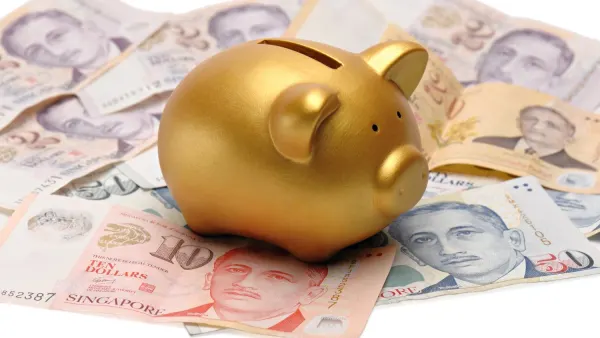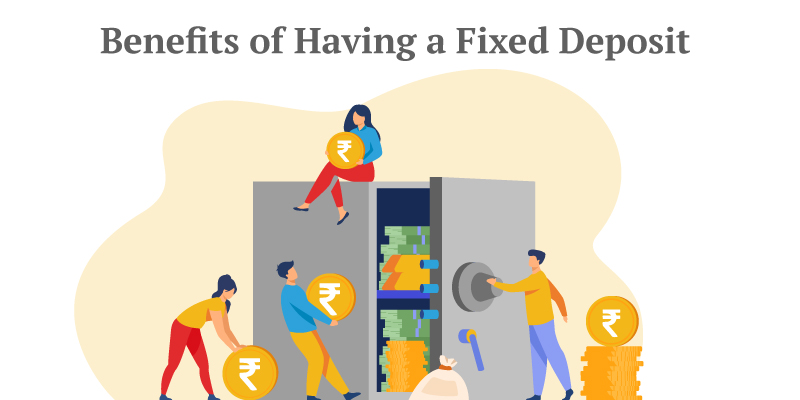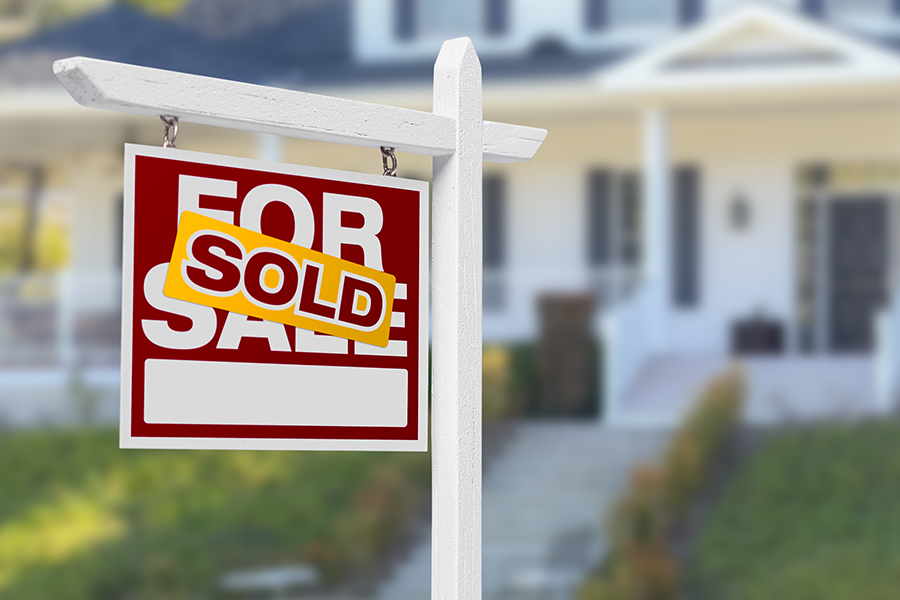Are you considering putting money into a fixed deposit or buying an investment property? Either option has its pros and cons, so it’s important to weigh them up carefully before making a decision. This blog compares the two options in detail, to help you make the best choice for your financial situation.
Fix Deposit Vs Property?
The first step is to compare the pros and cons of FD or real estate investments. Make sure you understand all the risks involved in both the investment options and be prepared to weather some turbulence in the stock market – this is part of owning investments!
Finally, remember that timing is crucial when buying or selling property – make sure you understand the current trends before taking action!
What Is A Fixed Deposit?

When it comes to buying an investment property, a fixed deposit is a great way to get started. The initial deposit gives you peace of mind, knowing that your funds are safe with guaranteed returns and a fixed interest rates.
Fixed deposits come with a range of pros and cons, so it’s important to weigh them all carefully before making a decision. Some of the pros of FD are that they are easily accessible and affordable.
They also come with a range of benefits, such as being able to lock in a stable interest rate, low risk and receive a higher rate of return that will generate income.
On the other hand, fixed deposits have fixed terms, which can be a disadvantage if you need to access your funds quickly. It is also important to note that the bank may change the fixed deposit interest rates without prior notice.
Finally, fixed deposits are considered less liquid than variable deposits, so they may not be suitable if you need to withdraw your funds in a short period of time. It’s important to consider all the pros and cons of this investment option before making a decision.
Note: Fixed deposits are often compared to mutual funds. You can learn more about them here.
Advantages Of Fixed Deposits

Fixed deposits are a great way to save for the future emergency funds. They offer stability and assuring. There are a number of investment options available with different interest rates, so you can find the best deposit rate for your needs.
Plus, locking in a rate of interest can be really helpful if you’re worried about market fluctuations. There is No Income Tax on the Bank Interest!
Disadvantages Of Fixed Deposits
When it comes to property investment, there are a number of benefits that come with choosing this option. Compared to fixed deposits, however, these advantages may not be enough for some people.
For example, if you are looking for high returns on your investment, fixed deposits might not be the best option for you. In fact, rates of return offered by banks can actually dwindle over time which can make them difficult to achieve in the long run.
Additionally, withdrawing money early from a fixed deposit account incurs fees and penalties – something that may not be desirable especially if you need the money urgently.
Furthermore, while an FD account may work well for many people who do not require frequent access to their funds or want guaranteed returns, they are unsuitable for those who desire more flexibility, and convenience (and have a strong risk appetite) when it comes to owning an asset such as property.
The current state of the Singapore investment market
It’s been a chaotic few years in the Singapore investment market. The Property Prices have been Resilient.
While there is a lot of hype around the current state of the market, it’s important to be cautious before investing.
So, what’s the best move for you?
What Type of Property Investment
There are three types of real estate you can invest in – residential, commercial and landed property.

When it comes to property investment, there are many pros and cons to consider.
Before making a decision, it’s important to understand all of them so you can make an informed decision. Here are five of the most important pros and cons of property investment:
Advantages Of Property Investment

Disadvantages Of Property Investment
If you are going down this route, always have savings saved in case anything does go wrong: no one knows what might happen over the course of time!
Real estate investment in Singapore: what to look out for

When it comes to investment properties, it’s important to be cautious. There are a number of things to consider before making the purchase, such as location and size.
Be aware of hidden costs involved in any property deal – like stamp duty and ABSD tax – and make sure you understand what you’re getting into.
Comparing the pros and cons of both options can help you decide which is right for you. That being said, be prepared to commit long-term to your investment. This includes budgeting time for maintenance as well as repairs/updates required on occasion due to wear and tear.
So, before you make that big purchase, be sure to do your research and check out the options available in Singapore.
Consider your financial goals

•It is important to understand your financial goals and objectives before investing in any property.
• Consider location, size, amenities, and annual expenses when making a decision. There is no Property Gain Tax in Singapore.
• Speak with a qualified estate agent for help throughout the process.
• Compare different types of investment properties to find the perfect match for your needs.
Research the property you want to buy

Before you buy an investment property, it is important to do your research. You need to know what kind of location and size you are looking for, as well as the amount of money you can afford to spend.
It’s also a good idea to consult with an estate agent or mortgage broker for a loan in order to get more information about the market and find out if there is any property that matches your requirements.
Finally, make sure you have a realistic plan in place before actually making an offer – overspending on your dream home could end up being a costly mistake!
Find out about the taxes and insurance that come with an investment property
• Before investing in property, be aware of the taxes and insurance that come with this type of investment.
• Understand the implications of tax rates on investment properties – this will help you better prepare for potential financial issues down the line.
• Ensure your investment property is adequately insured – this way, if something does go wrong, you’ll be covered financially.
Choosing between Real Estate and Fix Deposit

It can be tough to decide which option to take – real estate or fixed deposit as both are excellent investment options. But it’s important to weigh the advantages and disadvantages of each to make the best decision for your needs.
Fixed deposits are low-risk investments with guaranteed returns, but they may not be as lucrative as real estate over the long term. Properties can appreciate in value over time, so it’s important to research this option thoroughly before making a decision. At the same time, some would consider them as high-risk investments with unpredictable property prices.
Additionally, both options have their own risks and rewards – it’s up to you to decide which is best for you!
So, what are you waiting for?
Take a deeper look at real estate investments and FD accounts, and make an informed decision that will benefit you in the long run!
FD vs Real Estate: Which is the better option for you?
When it comes to buying an investment property, there are a few clear advantages that real estate has over fixed deposit products.
For one, you can buy a property at any time – which is great if you’re looking for something to invest in that is flexible with your timeline.
Fixed deposit products have their own set of benefits as well – they offer good rates of return and are stable investments. If you’re looking to invest your money long-term into something tangible, fixed deposits may be the better option for you.
However, when comparing these two options head-to-head, real estate always edges out fixed deposit products due to its leverage and potentially with a higher returns on investment potentials in the long-term investment portfolio.
What are some of the key factors that influence whether I should fix my deposit or buy an investment property?
Assuming you can bear with the higher up-front capital outlay of buying an investment property and are willing to wait a few years for it to appreciate in value, here are some other factors to consider:
- Timeline: An investment property will generally appreciate in value faster than a fixed deposit, assuming you are patient.
- Location: Ideally, an investment property within the Heartland areas will increase its chances of selling quickly and fetching a higher price.
- Financing options: Buying an investment property will often be bundled with a mortgage loan from the bank. We are seeing more home investors buying the property in cash (If the Situation Allows) for the ease of hassles the paperwork.
- Maintenance & Upkeep costs: If you’re thinking about fixing your deposit
Conclusion
Putting your funds into a Fixed deposit account, the bank will pay you the interest upon the start of the Fix Deposit. ( Subject to clawback if you withdraw the FD prematurely.
If you decide to buy an investment property, it will likely be more rewarding in long run.
When it comes to buying an investment property, the best thing to do is get help from a qualified estate agent. With so many options available these days, it can be hard to know which one is right for you.
Contact us to get professional assistance!













